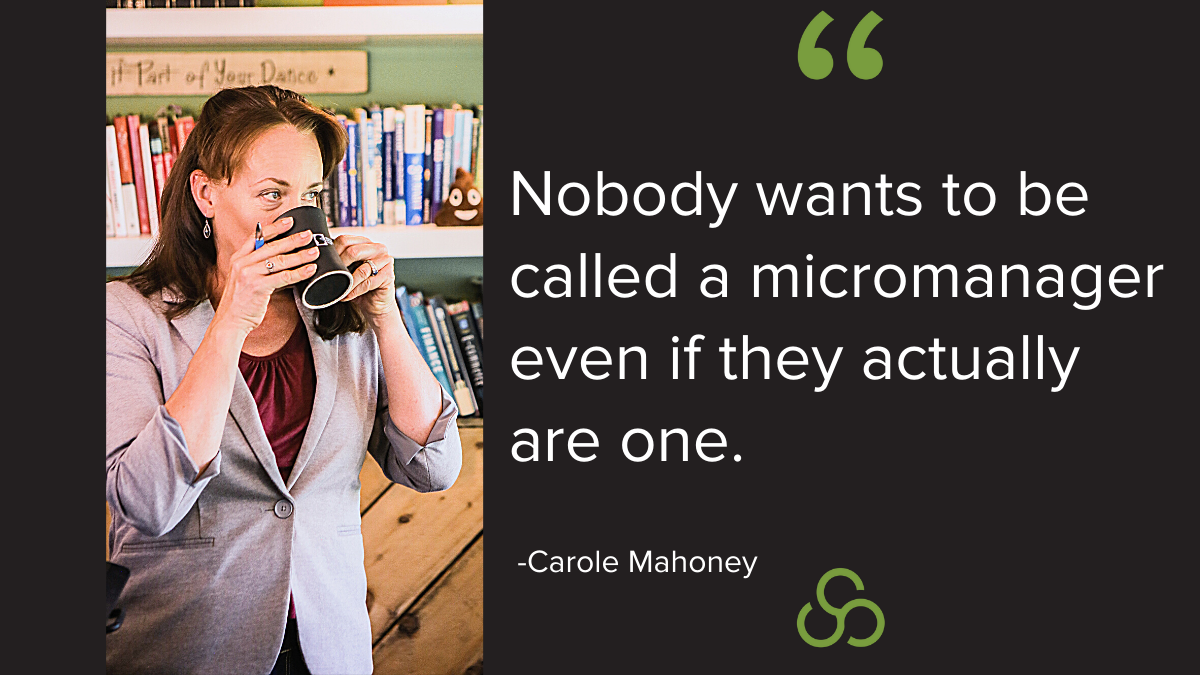
You know, accountability is kind of a dirty word sometimes and it's often associated with micromanaging.
Nobody wants to be called a micromanager even if they actually are one.
But what I have actually found is that accountability is a two-way street. For one thing, there needs to be a certain level of a learning culture within an organization in order for accountability to have a benefit.
So what I mean by "learning culture," is that if someone makes a mistake and they get chastised for it, embarrassed for it, or penalized for that mistake, then they're not going to be very likely to be open to sharing anything else.
They're not going to tell you what's going on because: "I don't want to get yelled at again. I don't want to be chastised again".
But if however, you have an environment where an employee or sales rep can come to you and say, “I really think I ‘loved’ this up. What do I need to do now?”, and they're open to learning and doing something about it. And if you're supportive of that, they're going to be much more likely to be accountable to you later on when something else goes wrong.
Holding your team accountable is not only for when things go wrong.
Which is the other side of accountability that I think I want to dispel is that a lot of people think of accountability as something that only happens when something goes wrong.
The best way for accountability to work without it being micro-managing is actually to set up a system of accountability where your sales reps are the ones that are telling you what they want to be held accountable to.
So, in one of the first steps that I go through with sales teams, we develop personally, meaningful goals for them. Actually, they set them, we just guide them through the process. And part of that process is creating an action plan, a strategy for how they're going to break their goals down into small manageable pieces of habits that they can build on. And then timelines, for those.
When do we need to see the results from these habits?
Habits, being activities and behaviors that they need to do.
They now are bought into what their plan is and the milestones and dates for that plan that they're going to be held accountable to. They share that with me. They share that with their manager. And now accountability is a roadmap that they wrote.
So now trying to hold them accountable isn’t a matter of ”Well, you were supposed to do this by 3:00 yesterday. Why didn't you get it done?” to, “Hey, I know that you had shared in your action plan that you wanted to get these things done at 3:00 so that you could achieve this next milestone in your plan. How did that go? What held you up or what challenges did you have? How can I support you best?"
That's a whole different kind of conversation and you'll start to see that accountability is something that when they opt into it that way, it's not uncomfortable.
It's actually a coaching conversation. It's a development conversation. That's how you can make accountability and motivation together, without micromanaging your team.
If you liked this video, you've got some insights from it, or you have a thought to share, please, comment below, and share it with others who you know, and are wondering about the exact same thing.
And if you want to dig in even deeper, then definitely visit our resources page.
You will find; calculators for sales hires to identify seller profiles, how to change your mindset, and a weekly blog. We're posting more video content like this for sellers and managers, leaders, and business owners.
And please check out our monthly newsletter. We dig even deeper into some of these techniques based on the patterns and trends that I see happening in sales and business today.






